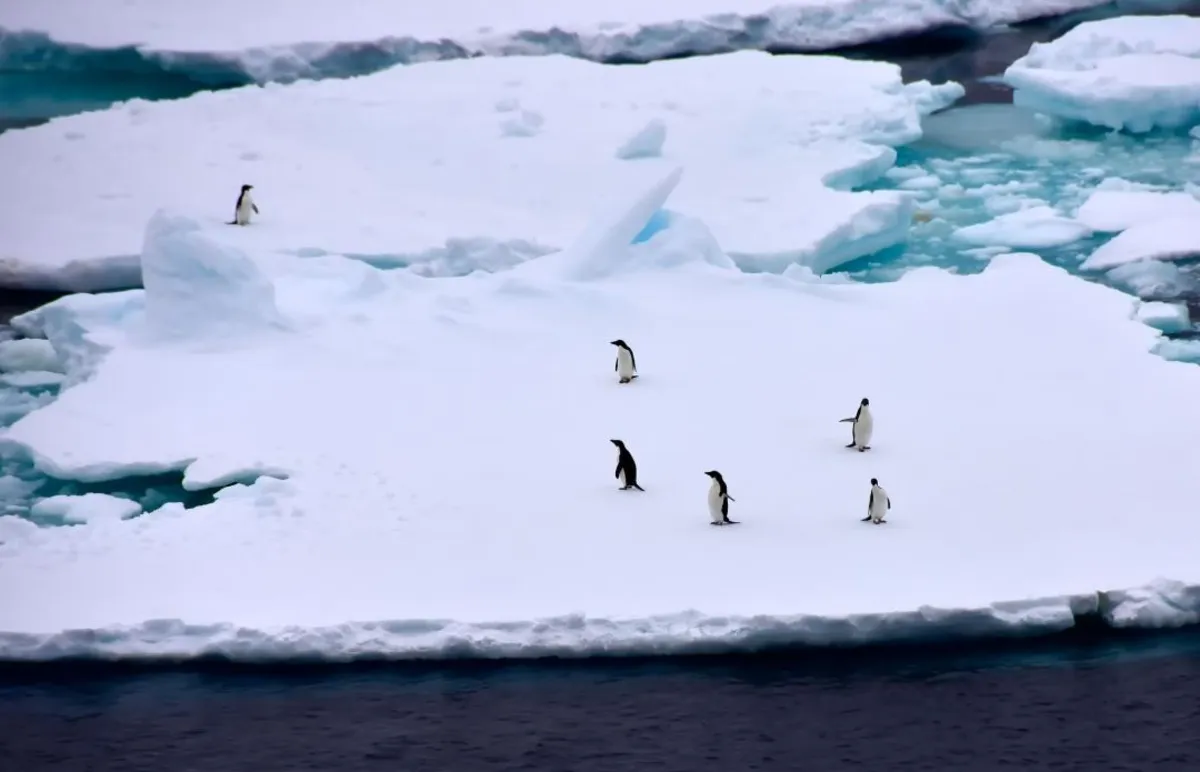
While cow burps have been identified as a contributing factor to climate change, recent research highlights an unexpected twist: penguin droppings may actually help mitigate the effects of global warming. A new study published in Communications Earth & Environment reveals that ammonia released from penguin colonies through their guano could play a crucial role in cooling Antarctica by enhancing cloud formation.
Researchers conducted their analysis near Marambio Base in Antarctica between January and March 2023. Their measurements revealed a dramatic increase in ammonia levels when winds blew from a colony of approximately 60,000 Adelie penguins, located just 5 miles away. The baseline ammonia concentration in the air was typically 10.5 parts per trillion, but it skyrocketed to 13.5 parts per billion—an astonishing increase of 1,000 times.
Even after the penguins migrated for the season, the impact of their guano persisted. The ammonia levels continued to be significantly elevated, remaining 100 times higher than the baseline due to the ongoing release from the penguin colony.
According to a press release explaining the research, ammonia plays a critical role in the formation of clouds. When it interacts with sulfur-containing gases, it generates aerosol particles that provide a surface for water vapor to condense upon. This process ultimately leads to the formation of clouds, which can act as an insulating layer, helping lower surface temperatures and maintain sea ice cover.
The study also confirmed that increased wind from the penguin colony resulted in a rise in aerosol particle counts, leading to the formation of fog in the area. This connection between penguin guano and cloud formation underscores the complex interactions within our natural environment.
Curiously, the high levels of ammonia found in penguin droppings can be traced back to their diet, which consists primarily of fish and krill. The nitrogen from their waste breaks down into ammonia, contributing to the elevated levels observed in the air. Lead author Matthew Boyer remarked to the Washington Post, “There are connections between things that happen on our natural planet that we just don't necessarily expect, and this is one of them.”
This groundbreaking research not only sheds light on how penguin droppings can positively impact the environment but also emphasizes the intricate balance of ecosystems and their potential effects on climate change. As we continue to study these relationships, we may uncover more surprising allies in the fight against global warming.